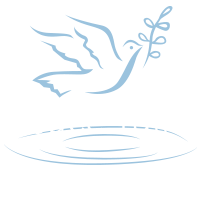An aging parent is resisting attempts by children or others to make difficult, life-restricting changes: giving up their car keys; turning over their checkbook; moving from their life-long home; separating from a spouse for medical reasons; or a first-time experience dealing with doctors, lawyers, insurance and Medicare. Each of these life-altering situations is the tip of an iceberg.
Beneath the surface, issues may lie waiting to bubble up: loss of autonomy, dementia, parent/child relationships, sibling rivalries & mistrust, just to name a few. And surrounding these issues, feelings of betrayal; fear (of both the known and the unknown); suspicion; lack of appreciation; or inadequacy may be interfering with healthy communication. These problems multiply when a parent or close relative dies and the family members are left to sort out the ensuing legalities and emotions.
The most helpful tool for all of these situations is healthy dialogue. But when these issues and feelings are present, unhealthy dialogue is the norm. In these situations, a neutral and independent, third-party can help. It may be a counselor, a minister or a mediator.
Mediators are trained to foster healthy and productive conversations between people in conflict. Most often, mediators start discussing the tip of the iceberg; the issue presenting itself as THE ISSUE. However, as the discussions go deeper, the other issues lying just beneath the surface emerge. As the participants begin to feel safe to speak more openly and reveal what they are truly feeling, honest communication takes place and these issues are addressed. Feelings are acknowledged and dealt with respectfully. Greater understanding of the other’s point of view is developed. Trust builds and, eventually, agreements are reached.
Recently, a brother and sister were locked in a battle over the handling of their parents’ finances during their later years. By the time they came to me, their parents had passed and they were embroiled in a lawsuit. One sibling was accused of mishandling their parents’ finances and engaging in self-dealing to the disadvantage of the other siblings. There was a pending request for the court to terminate this sibling’s role as legal representative of their parent’s estate and to exclude them from receiving any distribution of the remaining funds.
As the mediation progressed, issues going back years before either parent’s death surfaced and were gradually resolved, culminating in an agreement to resolve all pending matters without relying on a judge or jury to decide for them. Most rewarding were the kind words exchanged between a brother and sister at the conclusion of the mediation. They left my office discussing a family get together for an upcoming holiday; something which had not happened in over five years due to this dispute.
This is but one of hundreds of examples of the way sitting down to discuss the tip of the iceberg can lead to resolution of long-held divisions in families. It is why mediation in family disputes and probate matters is the best tool I have found to resolve them. It is why I love my work.




0 Comments